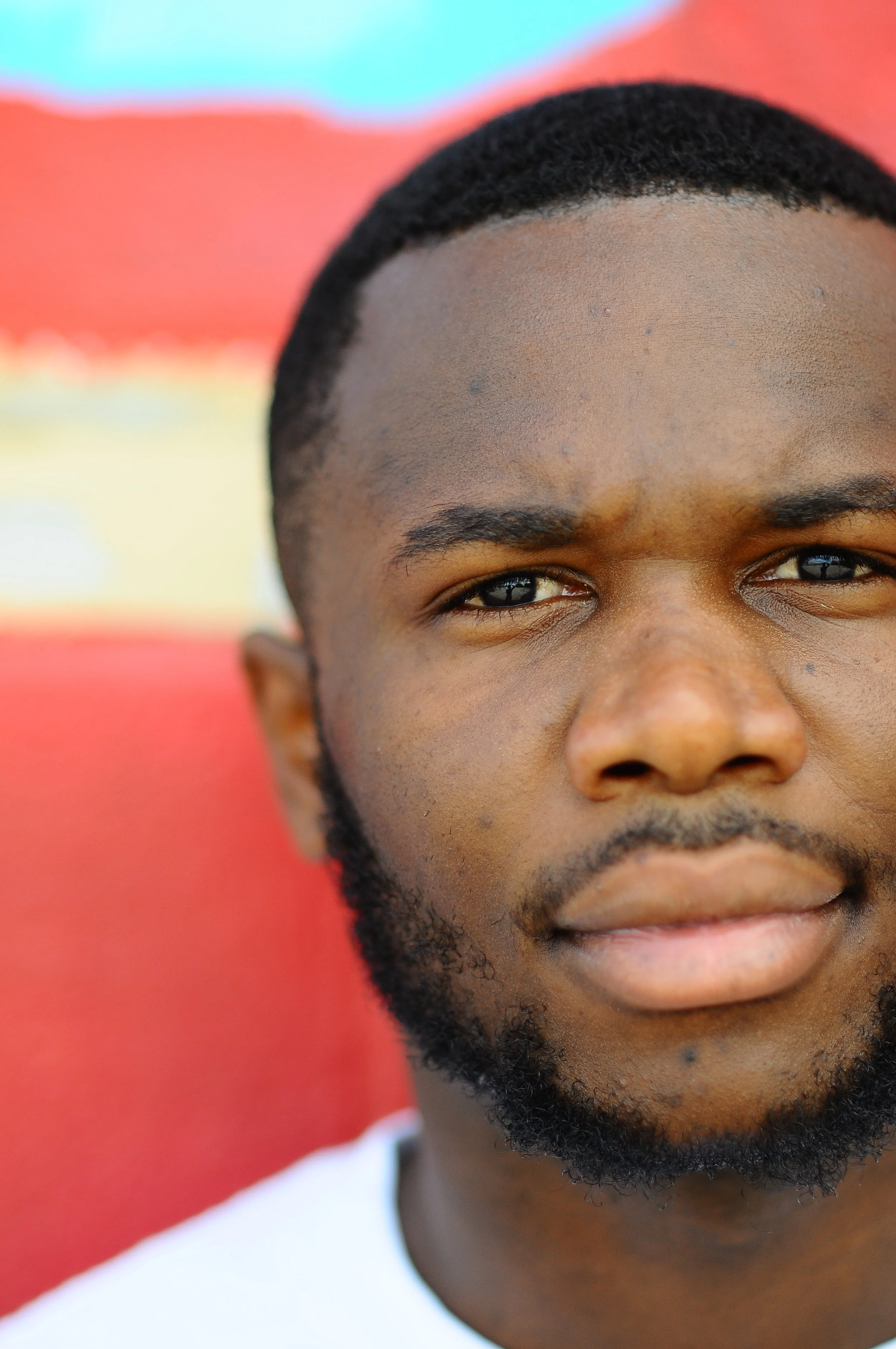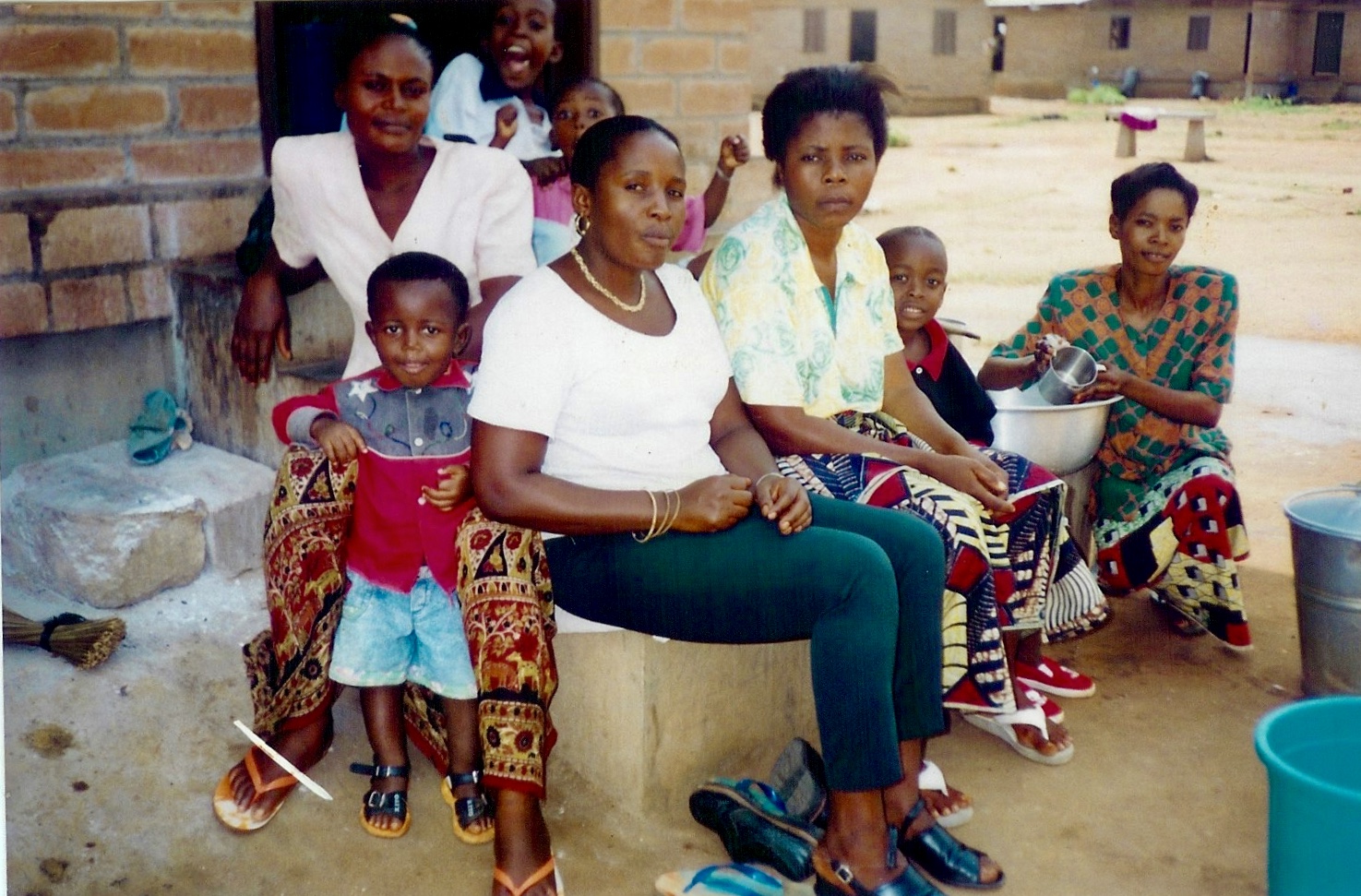Persevere to Excel Book
Escaping death, becoming a refugee, getting a second chance at life: The internal and external battle of survival and self-empowerment.
My name is Deo Mwano. My life has been full of unexpected events. I was born and raised in Zaire, which today is called the Democratic Republic of Congo. My world turned upside down when my father was assassinated in 1998. My father had been a senior advisor to General Mahele, the Congolese army’s highest ranking officer. General Mahele oversaw all of the military operations in the Zaire. I was seven years old when my father was killed.
Everything my family had was taken away. And we were afraid that whoever killed my father would come back to kill us too. My mother’s courage, faith and stubbornness kept us alive. Without her, my story might have ended two decades ago.
We left Congo as refugees and were relocated to a refugee camp in Benin, Western Africa. After two and a half years in the camp, we resettled in Manchester, New Hampshire on February 17, 2000. It was, so far as we knew, was the coldest place on earth.
At first, my family’s collective goal was modest: survival. Although such a goal required living in the present, we nevertheless became future oriented. Dwelling on the past seemed wasteful and pointless. My father’s death had made me the oldest male of the family. But it was clear to my brothers and me that my mother was in charge. My job was to help make sure my brothers stayed in line, were safe. I had no real authority, no voice of my own. But not long after resettling, all that changed when I revisited the place that my family, out of necessity, had forsaken: my past. And when I started sharing my story, I found my own voice.
At age 12, I traveled all over America, working with inner city communities through a program called Joshua Generation. The experience taught me a lot about what a person could accomplish within the framework of a supportive community. I also learned the power of perseverance. Of course I had seen perseverance demonstrated before by my mother. But seeing how it played out in a broader context taught me how it could work for me. And so with prayer, along with community support, perseverance helped me work through many of my struggles. I had had a horrendous early childhood. I experienced terrifying moments when I felt as if my life could be instantly snatched away. But now America was giving me a second chance at life. I cherished that opportunity. And I pledged to myself to work hard to maximize it.
We live in a very divisive world. Even though technology has made us more connected and, as a result, made the world a smaller and more intimate place, we have resisted trying to understand the perspectives and experiences of other people. Today, our divisions are holding us back, both as individuals and organizations, from moving forward in maximizing the skills, experiences and creativity that our diversity has given us.
Coming of age in a predominantly white community taught me a lot about differences. I developed great relationships with white people who took us in as family. Their support contributed tremendously to my success and forward momentum. But I faced a lot of racism, too. I have been belittled, treated unjustly and persecuted. Navigating through those challenges strengthened my ability to create ways to bring people together and move beyond what divides us. I have used my voice to advocate for those who were marginalized. I learned a lot about inner city America and people of color who live in poverty. The summer program I was involved with for 10 years ran counter to the safe life I lived in New Hampshire. It changed my perspective. I had to accept the harsh and often dead-end existences of the people I met. I also had to learn not to minimize their struggles by comparing them to my family’s escape from almost certain death in a country being torn apart by civil war. Above all, I had to learn an inconvenient truth. Despite the blessings of my life in America as a former refugee from Congo, I, too, would be marginalized because of the color of my skin. That important truth helped me build an empathy for the oppressed, but also forced me to confront realities I had managed to ignore.
As a teenager, I underwent a deceptive transformation. Externally I looked fine because I was chasing possibility. I was involved in things that uplifted my spirit and pushed me forward. Internally, however, my past trauma was eating me up. I was bound by bitterness and anger. Depression and suicidal thoughts came frequently. Fortunately, I was able to filter my inner turmoil through my faith. I learned how to confront my demons. I came to value conscious living, a self-awareness process which helped me discover what influenced my feelings, obsessions, decisions, passions, compulsiveness.
My journey toward self-awareness continued after college when I landed a job at a university as a learning coach. During this time, I listened to countless stories from students, gaining insight into their different perspectives. I helped design a coaching model with techniques aimed to better understand the relationship between motivation and action. This enabled me to help students take control of their intentions and initiate appropriate action to fulfill them. Finally, I took what I learned and applied it to my own life and interactions with others. I became more familiar with my personal drivers. I dissected my various traumas and saw how they impacted my own perspectives and actions. The better I understood myself, the more open and honest I became about the actions I have taken to get where I am today.
The title of my book, Persevere to Excel, is, on the surface, self-explanatory. But looking deeper is where the real meaning is found. Exceeding the average takes sustained effort. But what is perseverance? Where does it come from? What fuels it? Perseverance is often mistaken for “toughing it out.” But toughing it out is an adrenaline rush, good for the short run but not the long haul. Toughing it out is running on empty, which is not sustainable. Perseverance, on the other hand, is a renewable energy source. It is fueled through constant introspection and acquisition, by forces inside you and outside you. Only by identifying those forces is perseverance possible. And only with genuine perseverance is it possible to excel.
Persevere to Excel Chapters
Chapter 1 The Civil War in Congo and Why We Should Care About It
Chapter 2 My Mother’s Faith in God Saved Our family from Genocide
Chapter 3 Risking Everything for a Second Chance at Life
Chapter 4 How a Community Changed my Family’s Trajectory
Chapter 5 Forced into Fatherhood at Age 8
Chapter 6 Overcoming Pain and Anger to Reach Forgiveness
Chapter 7 Identity and Self Worth
Chapter 8 Beauty Defined by my Environment
Chapter 9 Why I Worked Instead of Playing Sports in High
Chapter 10 My Passion said “A” But My Report Card said “C, D, F”
Chapter 11 Finding Love and Racial Rejection
Chapter 12 Going from a Class of 500 to a Class of 16
Chapter 13 The Transformation in How I saw Beauty
Chapter 14 The Time I Was Almost Kicked Out of College
Chapter 15 Marrying my High School Sweetheart; Fatherhood at Age 22
Chapter 16 Learning to Embrace Emotions through Fatherhood
Chapter 17 The Grind After College To Find A Career Path
Chapter 18 Building Wealth and Owning Something—on Your Terms
Chapter 19 Am I African American or Congolese African?
Chapter 20 Why I Hate Being Called a Success Story



